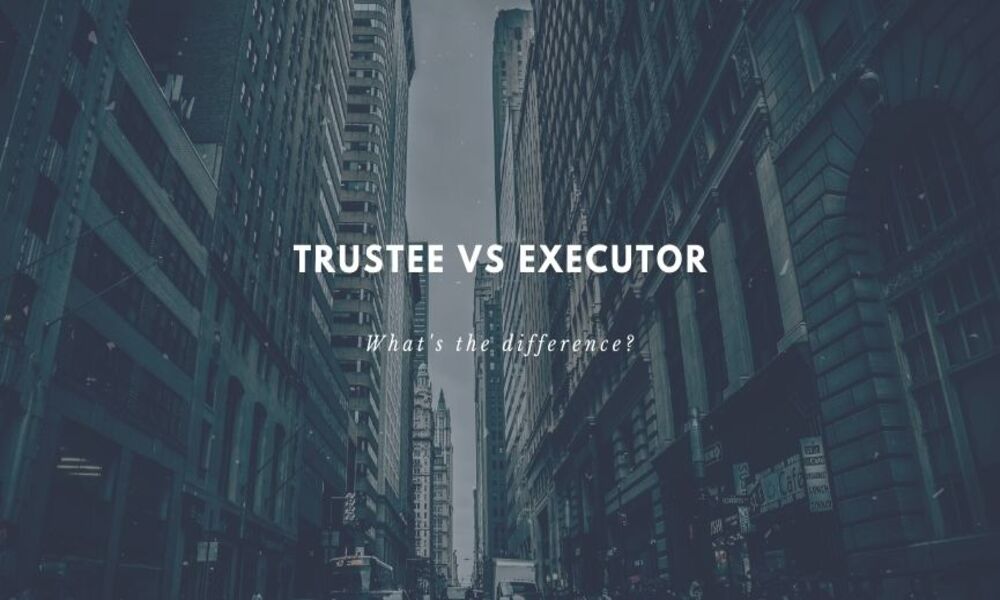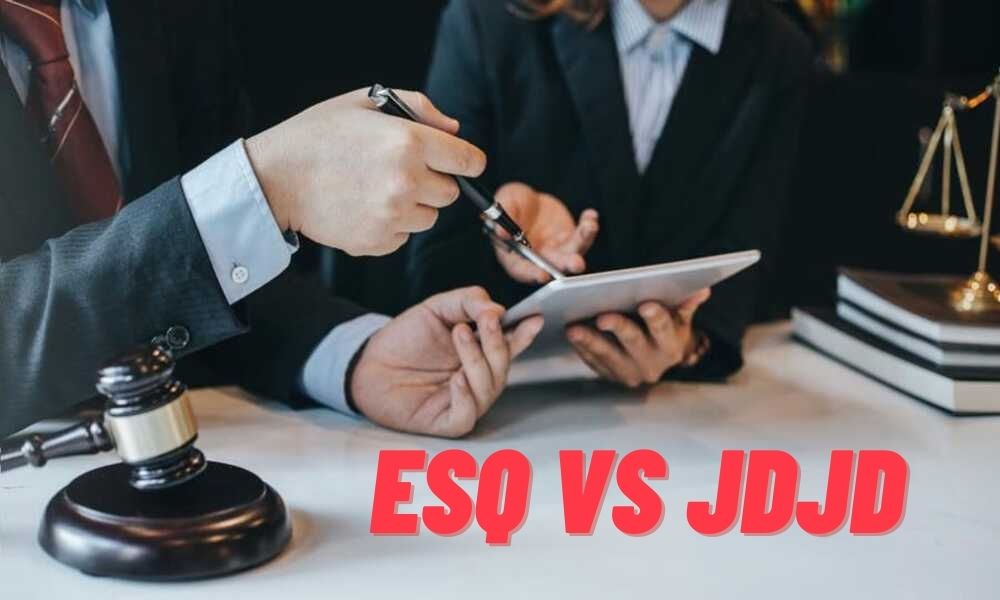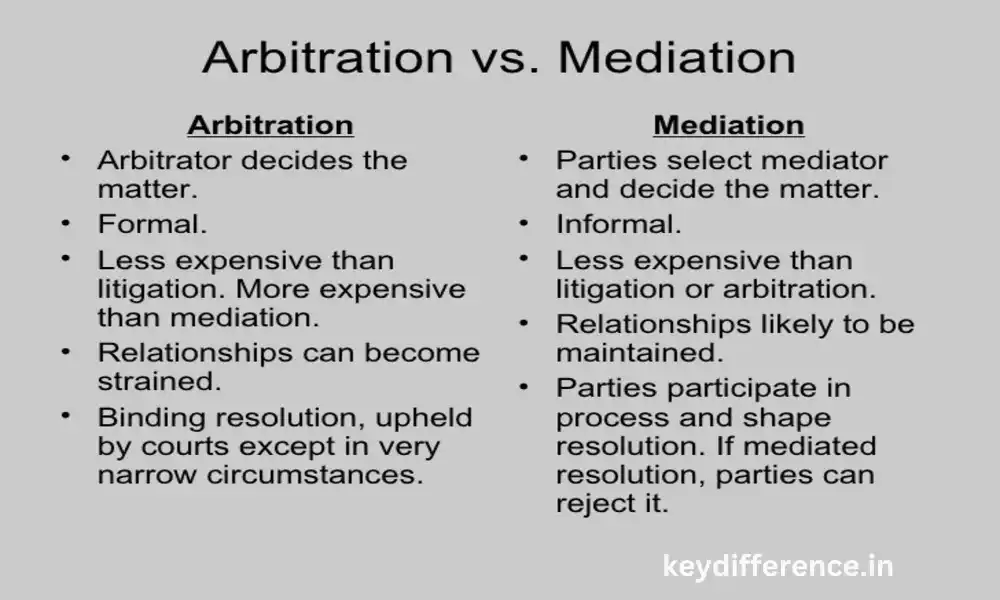An Introduction of Executor and Trustee
Executors and trustee roles play key roles in estate planning and administration, carrying out the wishes of deceased individuals while managing assets on behalf of beneficiaries.
Both positions involve overseeing asset distribution; however, there are significant distinctions between an executor and trustee in terms of their responsibilities, authority, and legal context – understanding these distinctions is vital for individuals involved in estate planning or those who may become beneficiaries of a trust or will.
This content outline explores the key differences and similarities between an executor and trustee, focusing on definitions, roles, powers, limitations and durations for their respective positions. Furthermore, this outline details their respective legal and fiduciary responsibilities associated with each role as well as emphasizing its significance when estate planning or administration.
By studying the distinct responsibilities and obligations of executors and trustees, individuals can make more informed choices when selecting individuals or entities to fulfill these essential roles. Beneficiaries also gain insight into asset management and distribution and ensure their rights and interests are safeguarded during estate settlement processes.
Definition of executor
Executor, often called personal representative or executor of will, is appointed by the testator (person who made will) to oversee and manage their estate after they pass away. Executors’ main responsibility is to see that the wishes outlined in their deceased loved one’s will are carried out effectively and efficiently.
They must perform various legal and financial duties, including gathering up all assets held by the deceased person, paying debts and taxes due, distributing the remainder to beneficiaries or heirs and overseeing any necessary probate proceedings.
Executor duties typically encompass managing the probate process, which is the legal procedure to validate wills and settle deceased person’s affairs. Executors should always act in the best interests of both their estate and beneficiaries while adhering to all relevant laws and regulations.

Definition of Trustee
A trustee is an Individual or entity appointed to oversee and manage assets held in trust on behalf of its Beneficiaries. A trust is a legal Arrangement in which one party (called a settlor or grantor ) Transfers assets directly to a trustee for Safekeeping for one or more beneficiaries; their responsibility lies in managing and safeguarding these assets according to terms set out in the trust document.
The trustee’s role requires them to fulfill a fiduciary duty, meaning they have a legal obligation to act in the best interests of beneficiaries and administer the trust in accordance with its settlor’s intentions.
Their responsibilities may differ depending on the nature and purpose of the trust; typically these include investing and managing trust assets, dispersing income/principal to beneficiaries as specified, maintaining accurate records, filing tax returns and providing regular reports back to beneficiaries.
Trustee duties require them to exercise extreme care, skill, and prudence while performing them, acting in good faith with all beneficiaries while adhering to applicable laws and regulations as well as making decisions that serve the best interests of beneficiaries while upholding trust’s integrity and sustainability.
Note that trusts may include multiple trustees; sometimes professional institutions like banks or trust companies may even be hired to administer complex or substantial trusts. Trustees’ roles will depend on what has been stipulated in their trust document; for instance, it might include provisions for appointment of successor trustees upon death, disability or resignation of an original trustee.

Comparison Table of Executor and Trustee
Below is a comparison table highlighting the key differences between an executor and a trustee:
| Aspect | Executor | Trustee |
|---|---|---|
| Definition | Individual appointed to administer a deceased person’s estate according to the terms of the will. | Person or entity appointed to manage and administer assets held in a trust on behalf of beneficiaries. |
| Appointment | Appointed through a will by the testator (person making the will). | Appointed through a trust agreement by the settlor (person creating the trust). |
| Responsibilities | Settling debts, managing estate assets, and distributing remaining assets to beneficiaries according to the will. | Managing and safeguarding trust assets, distributing income/principal to beneficiaries, and fulfilling the intentions outlined in the trust document. |
| Legal Context | Governed by probate laws and regulations. | Governed by trust laws and regulations. |
| Authority | Executes the provisions outlined in the will, subject to court supervision during the probate process. | Administers the trust according to the instructions in the trust document, with limited or no court supervision. |
| Duration | Generally, the role of an executor ends after the completion of the probate process. | Can span a longer duration, depending on the terms of the trust, potentially lasting for several years or even generations. |
| Scope of Management | Manages and distributes assets specifically mentioned in the will. | Manages and administers all assets held within the trust, including those transferred during the settlor’s lifetime. |
| Legal and Fiduciary Duties | Duty to settle debts, manage estate assets prudently, and act in the best interests of the estate and beneficiaries. | Duty to act in the best interests of the beneficiaries, exercise prudent asset management, and follow the instructions outlined in the trust document. |
| Succession | No automatic succession, but an alternate executor may be named in the will. | Successor trustees can be designated in the trust document or appointed based on the provisions outlined in the trust agreement. |
| Termination | Executor’s role typically terminates upon completion of the probate process and distribution of assets. | Trustee’s role terminates based on the terms specified in the trust document, such as the occurrence of a specific event or fulfillment of certain conditions. |
Note: It’s important to consult legal professionals for specific guidance regarding executor and trustee roles, as laws and regulations may vary depending on the jurisdiction.
Legal context and governing documents
Executor:
An executor’s role operates within the legal framework of probate law. Probate refers to the legal process which validates wills, settles debts of deceased individuals, and distributes their assets accordingly.
Executors are appointed and given authority based on provisions found within a deceased person’s will, while court oversight ensures compliance with legal requirements and protection of beneficiaries’ rights.
An executor follows the directions and guidelines laid out in a will in order to administer and distribute assets as directed in it.
Trustee:
Trustees operate within the legal parameters of trust law. Trusts are established through legal documentation called a trust agreement or trust deed, which sets out its terms, conditions, and instructions for managing and dispersing trust assets.
The trustee is appointed and empowered by virtue of provisions contained within their trust document. Operating independently from probate processes and without need for court supervision unless certain specific situations exist.
The trustee is guided in their actions and decisions by both the provisions outlined in the trust document as well as applicable trust laws.
An executor typically operates under probate law while trustees typically follow trust law. Their authority and actions are dictated by provisions contained within a will while trust documents provide guidelines and instructions that guide trustees.
Appointment process and authority
Executor Appointment:
An executor is typically appointed through a formal process outlined in a will of deceased person, whereby their testator designates them with name and other pertinent details in their will. Executorship takes effect upon a testator’s death.
If their will does not name an executor or their designated executor is unwilling or unable to fulfill this role, the court may appoint an administrator instead.
An executor derives their authority from both the provisions of a will and local laws in which they reside.
Executors have legal authority to manage and administer an estate of a deceased individual, such as gathering and safeguarding assets, paying debts and taxes due, distributing assets among beneficiaries, etc. Executors’ authorities are subject to court oversight during probate proceedings to ensure compliance with legal requirements and protection of beneficiary rights.
Trustee:
When selecting a trustee instead of an executor, their appointment process differs significantly. An appointed trustee is selected through the establishment and formation of a trust. When creating and establishing the trust, its settlor (creator of the trust) appoints one or more trustee(s). Their appointment can either take effect during their lifetime or upon their death depending on its type.
A settlor may appoint multiple trustees or successor trustees in order to maintain continuity and seamless transitions within their trust agreement and governing legislation. Each trustee’s authority comes from this combination.
A trustee has legal authority to administer and manage assets held within their trust according to its trust document.
Under normal circumstances, trustees’ powers do not fall under court supervision; however, special attention may be necessary in certain situations or if beneficiaries or others raise disputes or voice complaints about them.
An executor is usually appointed through provisions in a will, while trustees are appointed through trust agreements. An executor’s authority comes from their role under their will and is subject to court oversight; while trustees’ powers usually exist independently from such oversight.
Scope of responsibilities and asset management
Executor Responsibilities:
An executor’s responsibilities center around ensuring the smooth administration and distribution of an estate as per provisions outlined in its will. In particular, their tasks may include:
Locating and gathering assets belonging to a deceased, including bank accounts, properties, investments, personal belongings and bank accounts. Protecting estate assets during probate proceedings. Clearing away their debts such as taxes owed and funeral costs.
Assuring that assets are distributed according to your will.
Resolving disputes or challenges related to estate administration. An executor owes a fiduciary duty to act in the best interests of their estate and beneficiaries while upholding transparency, fairness and legal requirements.
Trustee:
As a trustee, your duties include overseeing and administering assets held within a trust for the benefit of its beneficiaries. Specific duties depend on what has been agreed in its Trust Agreement.
A trustee’s duties may include:
Safeguarding and administering the assets held within the trust, which could include cash, investments, real estate holdings or business interests; incadr Investing trust funds responsibly and adhering to any set guidelines or restrictions that exist for doing so.
Distributing income or principal from the trust to its beneficiaries according to its trust document. Maintaining accurate records of trust transactions such as income, expenses, distributions and any changes to the trust.
Filing tax returns on behalf of the trust. A trustee owes a fiduciary duty to act in the best interests of beneficiaries by managing trust assets with care, prudence and loyalty while following any instructions detailed in its trust document.
Similarities between Executor and Trustee
Fiduciary Duty: Both an executor and trustee owe a fiduciary duty to their beneficiaries by acting in their best interests when managing assets entrusted to them. Their legal obligation requires them to manage them with care, loyalty, and prudence.
Financial Management: Executors and trustees both bear financial management responsibilities. Executors and trustees are charged with overseeing assets safely, making sound investment decisions, and dispersing income or assets to beneficiaries according to law.
Executors and trustees play an essential role in asset distribution. Executors distribute assets according to provisions in a will; trustees follow instructions in their trust document for this task. Both roles aim to ensure assets are distributed accurately in accordance with legal regulations.
Compliance with Laws and Regulations: Both roles demand compliance with applicable laws and regulations, such as tax laws, reporting requirements and any legal obligations related to administering an estate or trust. Executors and trustees are accountable for filing necessary tax returns as well as fulfilling other legal responsibilities to remain compliant.
Record-Keeping: Executors and trustees have an obligation to maintain accurate, detailed records of their financial transactions and activities, such as income, expenses, distributions, investments or any changes that occur to an estate or trust. Good record keeping helps maintain transparency and accountability when managing assets.
Legal and Administrative Tasks: Both roles encompass legal and administrative responsibilities. Executors and trustees may need to engage in probate or trust litigation proceedings should disputes or challenges arise, communicate with beneficiaries, creditors and other relevant parties as needed and fulfill reporting requirements as part of their duties.Although executor and trustee roles differ significantly, their shared responsibilities and duties in managing assets for beneficiaries is evident.
Financial management and asset distribution responsibilities
Executors and trustees both carry major responsibilities related to financial management and asset distribution.
Although their tasks and processes may differ depending on the role, governing documents (will or trust), and asset distribution mechanism used, there are some general aspects for consideration:
Financial Administration Responsibilities:
Asset Identification and Collection: Executors and trustees must identify all assets belonging to an estate or held within a trust, such as bank accounts, investments, real estate properties, personal properties, or any other valuable items that belong to either entity. This could include bank accounts, investments, real estate properties, personal items and any other valuable possessions or investments held within either framework.
Valuing Assets: Executors and trustees have an important responsibility of obtaining valuations of assets at their fair market values as of either death (for executors) or on valuation date (for trustees). This valuation serves two important purposes – estate tax purposes as well as establishing asset distribution values.
Executors and trustees have an obligation to protect and secure any assets under their care, taking necessary measures to avoid losses due to theft, damage or depreciation. This may involve purchasing insurance policies, safeguarding physical assets or monitoring investments.
Record-Keeping: Executors and trustees must maintain accurate and detailed records of all financial transactions, income, expenses and distributions pertaining to an estate or trust. Accurate record-keeping is critical for transparency, accountability and fulfilling reporting obligations.
Investment Management: Executors and trustees may be charged with overseeing and investing the assets belonging to an estate or trust, depending on its circumstances and governing documents. Executors or trustees should act with care while keeping in mind both its goals and those of any beneficiaries who stand to benefit while adhering to any guidelines or restrictions laid out by these documents.
Responsibilities Related to Asset Distribution:
Beneficiary Identification: Executors and trustees must locate all beneficiaries entitled to receive assets from an estate or trust. This may involve conducting searches, communicating with potential beneficiaries, and verifying their legal entitlement.
Distribution Planning: They are charged with devising a distribution plan in line with the instructions outlined in a will or trust, taking into account any special conditions or restrictions set forth within such documents. This may involve determining when and how distributions occur as well as any restrictions set in place that affect these distributions.
Fair and Equitable Distribution: Executors and trustees must ensure that assets are distributed fairly and equitably among beneficiaries, taking into account either the intentions of a deceased individual (in the case of executors) or provisions in any trust documents (for trustees) when making distribution decisions.
Payment of Debts and Taxes: Before dispersing assets to beneficiaries, executors and trustees must settle all outstanding debts incurred by their estate or trust such as taxes, liabilities, expenses, claims against it as well as ensuring compliance with tax laws. This may involve reviewing claims made against it before making necessary payments and complying with tax laws.
Documentation and Reporting: Executors and trustees have an obligation to document the distribution process and provide beneficiaries with all the required information and documentation for their entitlements, such as distribution schedules, statements, or any required legal paperwork.
Executors and trustees should make every effort to carry out their financial management and asset distribution responsibilities appropriately, adhering to legal requirements, fiduciary duties, and instructions provided in governing documents. Consulting legal and financial professionals for guidance during this process is recommended for optimal compliance.
The requirement to comply with applicable laws and regulations
Executors and trustees both have an ethical obligation to abide by all relevant laws and regulations during their roles, to ensure they operate legally. Compliance can help them fulfill their responsibilities responsibly.
Below are key aspects related to compliance:
Probate and Trust Laws: Executors and trustees must possess an in-depth knowledge of the probate and trust laws specific to their jurisdiction, including requirements, procedures, deadlines, and deadlines regarding estate administration and trust administration.
Filing Legal Documents: Executors and trustees may be required to file various legal documents with various court or government agencies, such as probating wills, inventories of assets submitted for evaluation purposes, accountings provided, tax returns filed etc.
Tax Compliance: Executors and trustees have certain tax-related responsibilities they must fulfill, such as filing estate and trust tax returns, accurately reporting income, deductions, distributions, and any applicable taxes owed by an estate or trust, and paying any applicable taxes due.
Reporting and Discloses: Executors and trustees may be required to provide periodic accountings or reports to beneficiaries, the court, or other appropriate parties regarding their estate or trust administration activities. Such disclosures ensure transparency while assuring a responsible approach is being taken when managing these entities.
Privacy and Confidentiality: Executors and trustees must respect the privacy and confidentiality of sensitive information related to an estate or trust, handling personal and financial details responsibly in accordance with all privacy regulations.
Beneficiary Rights and Protections: Executors and trustees should be aware of the rights and protections afforded to beneficiaries under law, making sure that they receive informational disclosures required by statute, as well as uphold their right to fair and equitable treatment.
Prudent Investment Standards: Trustee’s are required to abide by prudent investment standards when managing and investing assets for their beneficiaries, whether this means following state laws or following guidelines provided in the Uniform Prudent Investor Act (UPIA). UPIA establishes guidelines that guide trustees towards acting in the best interests of beneficiaries while considering risks, returns, diversification options and any other relevant factors when acting as fiduciaries.
Additional Applicable Regulations: Depending on the nature and circumstances surrounding an asset or trust, executors and trustees may need to comply with additional laws and regulations; for example if real estate forms part of their estate they will likely need to follow local property regulations and laws.
Executors and trustees can ensure the estate or trust administration process runs legally, ethically, and transparently by adhering to applicable laws and regulations. Seeking guidance from legal or financial professionals may provide additional insight when navigating the complexities of estate/trust administration law.
Final thoughts on the significance of choosing the right executor and trustee
Selecting an executor and trustee with care and precision is of utmost importance for smooth administration of an estate or trust.
Below are some final thoughts on this decision:
Legal and Fiduciary Duties: Executors and trustees have significant legal and fiduciary duties as executors or trustees of an estate or trust. Executors/trustees are charged with managing assets, making key decisions, acting in the best interests of beneficiaries or estate heirs and acting with integrity and financial acumen in mind to fulfill these responsibilities effectively. Selecting individuals who possess all three qualities will enable executors/trustees to fulfill these roles successfully.
Competence and Expertise: Estate or trust administrators must possess both the competence and expertise to manage all aspects of estate or trust administration efficiently, including legal obligations, tax implications, financial management considerations and specific asset issues. Experienced individuals or professionals such as attorneys or financial advisors may help ensure a seamless administration process.
Trustworthiness and Integrity: Executors and trustees should be people whom can act with impartiality when managing and dispersing assets, managing financial transactions, or making decisions which affect beneficiaries. Selecting individuals with proven honesty and integrity helps protect all parties involved.
Communication and Interpersonal Skills: Executors and trustees must possess excellent communicators skills as they will interact with beneficiaries, legal professionals, financial institutions and other relevant parties. Strong interpersonal abilities allow executors and trustees to navigate potential conflicts effectively while meeting beneficiary concerns while remaining transparent throughout their processes.
Estate and Trust Administration Can be Time Consuming: Select Executors/Trustees that have Time Availability: Estate and trust administration can be an extensive and time-consuming undertaking, so selecting executors/trustees who can dedicate the necessary effort and dedication in fulfilling their responsibilities promptly while remaining accessible in case any issues arise.
Succession Planning: Anticipating potential contingencies when selecting executors and trustees is essential to ensure continuity in administration processes and minimize disruptions. Appointing successors ensures continuity while protecting against possible disruptions that might otherwise occur.
Review and Update: It is wise to periodically evaluate and reassess the choice of executor and trustee, since circumstances can change over time and initial decisions may no longer meet current needs and preferences. Regular evaluation allows adjustments to be made as required to keep things on track with expectations and preferences.
Selecting an executor and trustee can have a profound effect on the administration of an estate or trust, so making this important choice requires due consideration of their qualifications, trustworthiness and commitment.
Engaging professional guidance such as legal and financial experts may offer invaluable insight and ensure a well-informed decision which serves the best interests of all involved parties.



